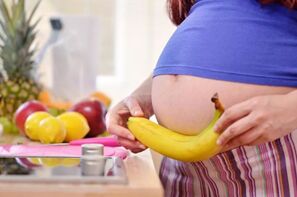研究显示 多吃水果助孕 爱吃快餐难怀孕
|
Eating plenty of fruit could help women conceive, a new study suggests. Researchers who looked at more than 5,500 women from Britain, Ireland, Australia and New Zealand found those who consumed the least fruit were 50 percent more likely to be infertile. And compared to women who ate fruit three or more times a day in the month before conception, women who ate fruit less than one to three times a month took half a month longer to become pregnant.
They also calculate that the women with the lowest intake of fruit had a 12% risk of having been unable to conceive within a year. Similarly, compared to women who never or rarely ate fast food, women who consumed fast food four or more times a week took nearly a month longer to become pregnant. Their risk of infertility also doubled from eight to 16 percent. However the amount of green leafy vegetables and fish made no difference to conception times. Professor Claire Roberts, of the University of Adelaide, Australia, who led the study, said: "These findings show that eating a good quality diet that includes fruit and minimising fast food consumption improves fertility and reduces the time it takes to get pregnant." First author, Dr Jessica Grieger, post-doctoral research fellow at the University of Adelaide, added: "We recommend that women who want to become pregnant should align their dietary intakes towards national dietary recommendations for pregnancy. Our data show that frequent consumption of fast foods delays time to pregnancy." Previous research has focussed on the role that diet plays in women diagnosed with or receiving treatment for infertility however the impact of diet before conception for the general population has not been widely studied. For the study pregnant women were surveyed by midwives on how long it had taken them to become pregnant, as well as their intake of fruit, and fast foods such as burgers, pizza, fried chicken and chips. Dr Grieger said: "Most of the women did not have a history of infertility. We adjusted the relationships with pre-pregnancy diet to take account of several factors known to increase the risk of infertility, including elevated body mass index and maternal age, smoking and alcohol intake." "As diet is a modifiable factor, our findings underscore the importance of considering preconception diet to support timely conception for women planning pregnancy." The research was published in the journal Human Reproduction. |









